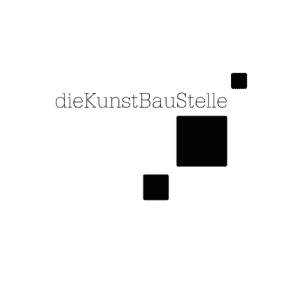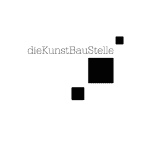Last week, Wolfgang Hauck handed over urgently needed relief supplies – baby clothes and diapers – worth 2,200 euros to the logistics manager of the Nusaybin refugee camp on behalf of the Landsberg cultural association “dieKunstBauStelle e.V.”. The “Netzwerk Selbsthilfe e.V.” association donated this sum to dieKunstBauStelle for the refugee camp. Further donations were made by the “Netzwerk Selbsthilfe” and the “Rotary Sozialfonds Greifenberg-Schondorfe.V.” for the “Cultural Relief Program” of the “Die Stelzer” theater.
In Nusaybin in south-eastern Turkey, just five kilometers from the Syrian border, the “Die Stelzer” theater is running a cultural aid programme. Wolfgang Hauck developed the concept during his first visit in December 2014. It is based on a multiplier effect: Trainers are trained as multipliers under professional guidance, who in turn train other trainers and provide children with cultural activities.
“When I saw the scale of the” smallest “camp in Nusaybin a year ago, with 3,975 refugees, half of whom were children and young people, it was clear that we had to act on a different scale,” says the initiator, who was commissioned by the Goethe-Institut Istanbul as an expert for cultural projects and invited to implement a cultural aid program. “If you then look at the camps in Urfa and Jordan with 20,000 or 120,000 refugees, such a concept is unavoidable.”
The children and young people are also traumatized due to experiences of violence and flight. “We are now specifically in a refugee camp for Yezidis, who not only come from civil war-torn Syria but also from Iraq. These people are not only fleeing war and IS, but are also persecuted as a religious minority. Their everyday lives are not only full of hardship, but also without any prospects or prospects.”
The need is great
Basic supplies are provided in these camps, but that only means food, water and a place to pitch a tent. Everything else is a luxury. The young mothers with their newborn babies are hit the hardest. They lack the most basic hygiene products. To date, around 350 children have been born in the camp. This year alone, 92 newborns have been born.
“For this reason, I have tried to provide small but direct humanitarian aid in addition to cultural aid. I was able to collect donations for this and have now used 2,200 euros,” says Hauck. With the help of the NGO “Her Yerde Sanat Derneği”, they bought 270 first aid kits for newborns and 270 large packs of diapers.
Tense situation
The original plan was to combine the handover of the equipment with further training at the camp. Landsberg-based Leonhard Mandl, stilt trainer, and Anselm Kirsch, music and percussion teacher, were part of the team for this purpose. However, things turned out differently: an absolute curfew was imposed on the city of Nusaybin (approx. 140,000 inhabitants). Seven civilians were shot dead during this phase. “The situation is extremely tense and critical. There have been several civilian deaths,” reports the head of the project. “We only received permission from the governor to go into the camp on the last day before we left for Germany. We were only able to stay there for an hour to hand over the donation.”
“Even if it’s only small amounts of aid: We can see that it arrives and where it arrives,” says Hauck. “In addition, our small amount of aid also serves to build trust with the camp administration and the governor, which is immensely important for our further cultural and social work there.”
During the handover, there was at least a brief opportunity to meet the young people with whom we have often worked together. They were about to present a demonstration for the younger children. It was immediately clear that the concept of “training the trainers” works. The young people organize themselves, make their own costumes, think up productions, in short: they do something.
Support from four “circus heroes”
A further donation of 4,000 euros will therefore be used to support four youth trainers. The four circus heroes of the NGO “Art Anywhere Association” of a “Social Circus School” in Mardin are 14-year-old Ahmet, 12-year-old Hale, 14-year-old Eyad and 13-year-old Khalid. They have already been trained by Wolfgang Hauck and other trainers so that they can now teach other children. These funds will give them the opportunity to attend a regular school and continue their education. This is by no means the norm for these refugee children: they would otherwise have to work six days a week, ten hours a day, for four euros a day to support their families, who have no opportunity to work or earn money.
This important cultural aid, which is also significant from a trauma education perspective, is now being extended to Iraq. A trainer from the program is already active there and has founded a first group in the refugee camp in Khanke (20,000 refugees). He was provided with stilts, drums and equipment by the Goethe-Institut Istanbul. Young people are also being trained here. “However, our aim is also to use our cultural work to provide humanitarian aid – as far as this is possible within our framework,” emphasizes Hauck.
The experience gained from the projects is also used in Germany. A follow-up project is a cooperation with the school in Schloß Zinneberg, where unaccompanied refugee minors are taught German in an integrative way. Hauck has also given presentations on the situation in Iraq, Syria and Turkey as well as an overview of the possibilities for cultural activities.
The more you get to know the problems in the Arab world, the more difficult it is to answer questions about solutions. It is precisely this insight that politicians need in order to deal realistically with the refugee problem here and to plan. Unfortunately, there is still a lack of information and approaches are too short-term.
The need is still great, whether for relief supplies or for the continuation of cultural work: anyone wishing to donate directly can easily do so online:
Donation link: Humanitarian Aid Nusaybin
Donation link: Cultural Relief Program
Info about the program
www. CulturalRelief.org

